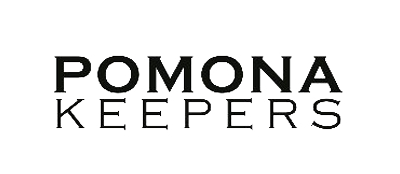- On the occasion of the World Olive Oil Exhibition’s presentation, a panel discussion was held. José Miguel Herrero —Spain’s Director-General for the Food Industry from the Ministry of Agriculture, Fisheries and Food—
- The auto-regulation system, conceived by the olive oil sector itself and even more stringent that the Quality Standard in place, will provide greater transparency and guarantees throughout the entire elaboration process of olive oils in Spain.
Madrid, 8th of February 2022. The World Olive Oil Exhibition is already warming up its engines. Following two years without taking place due to restrictions imposed by the pandemic, this year, the biggest olive oil monographic fair will be held. During the 8th and 9th of March, IFEMA’s Pavilion 1 will turn into the meeting point for producing countries, consumers and every company related to EVOO, with clear goals: consolidating the olive oil trade and opening up new markets. More than 47 participating countries, more than 1,000 companies and almost 4,000 visitors were reunited during the last World Olive Oil Exhibition; such numbers have turned the WOOE into the key international trade fair for everyone working in the olive oil industry.
On the occasion of the presentation of the World Olive Oil Exhibition, a roundtable discussion was organized under the heading “The Quality Standard and the possibility of a self-monitoring system for the olive oil-making sector”. José Miguel Herrero Velasco, Director-General for the Food Industry from the Ministry of Agriculture, Fisheries and Food; Ignacio Silva, President of Deoleo; Antonio Luque, President of DCOOP, Joaquim Martins, CEO of IFFCO Iberia and BU Olive Oil; and Iñaki Benito, Managing director of Olive-growing Community Heritage, were in charge of tackling this issue. At the event, Otilia Romero de Condés, CEO of Pomona Keeper and María José Sánchez, Director de Food Fairs of IFEMA Madrid, also participated as representatives of the WOOE’s co-organizing companies.
As Juan Vilar noted, the Quality Standard “is an initiative conceived by the Ministry of Agriculture that gathers all the aspects enabling every element that takes part in the value chain to interact adequately and with the guarantee that what the user and/or consumer receives corresponds to the raw material or the product elaborated in origin and is then manufactured in the industry’s chain”. The Ministry of Agriculture, Fisheries and Food has been in charge of laying out the appropriate fields so that such Quality Standard can be developed. In the words of José Miguel Herrero Velasco “we are witnessing a historical moment in which we can ensure a bright future for the Spanish olive oil industry.”
As part of the Quality Standard, this is the first time that “olive oil” has been named including the term “olive”, since until now it shared a category with other sorts of vegetable oils. In the words of the Director-General for the Food Industry of the Ministry of Agriculture, Fisheries and Food, one of the most significant aspects of the said regulation is traceability and “when we talk about traceability, we talk about both internal traceability and traceability of movements of products, so that any olive oil that is moving within our country has to be registered and included in a system (REMOA), which allows us to provide a guarantee and transparency system, being the Autonomous Communities (Spanish regions) —in collaboration with the Ministry of Agriculture, Fisheries and Food— in charge of ensuring that such Law is fully complied with.” In this sense, Ignacio Silva, President of Deoleo, added: “We need to know what happens in the value chain —since the olive is on the tree until the olive oil gets to the consumer. The responsibility of companies requires a constant and active search in order to provide greater transparency and to meet the consumers’ needs; however, this sector has often paid more attention to the raw material, with its back to consumers; when what it’s essential is that the consumer buys and appreciates our product”.
Objective: to consolidate the image and reputation of Spanish olive oil globally
Beyond the Quality Standard implemented by the Ministry of Agriculture, Fisheries and Food, José Miguel Herrero considered vitally important the fact that it was the sector itself that “took a step forward by raising the bar proposing an even more demanding auto-regulation system than the aforementioned Standard, and that will give foreign buyers confidence, because it will differentiate Spanish olive oils abroad”. “This means that every company from the olive-growing sector will have access to the Administration 365 days per year”, added Antonio Luque, President of DCOOP.
Joaquim Martins deemed it vital that the sector “is supporting the regulations gradually enforced by the government, in a way that the sector is also involved in the ultimate goal, this is the first step in order to consolidate the image of olive oil worldwide”. In fact, Iñaki Benito declared that “following production records and the tariffs’ crisis in the United States, now was the right time for adopting this Standard; a regulation that is going to ensure a stronger system that could even be exported to other countries”. Despite still not being finalized, the possibility that the aforementioned certification system “could have included a specific seal” is envisaged, as stated by the Managing director of the Olive-growing Community Heritage.
Lastly, José Miguel Herrero also wanted to refer to the Tasting Panel: “it was a smokescreen for not talking about other issues concerning the sector. Therefore, when we listened to the industry, the distributors and even the consumers, we sought for greater legal certainty; now we no longer have excuses to not engage with a higher quality and, hence, this standard was created.” To which Ignacio Silva remarked: “the Tasting Panel has existed for over twenty years and, although it creates certain uncertainty, if you want to change it, something better has to be offered, something that strengthens it. The Law on Quality of Olive oil and the self-regulation system —which we have just implemented— are not perfect now, but they will be over time”.
![logo-wooe[2] logo-wooe[2]](https://oliveoilexhibition.com/wp-content/uploads/2021/06/logo-wooe2.png)
